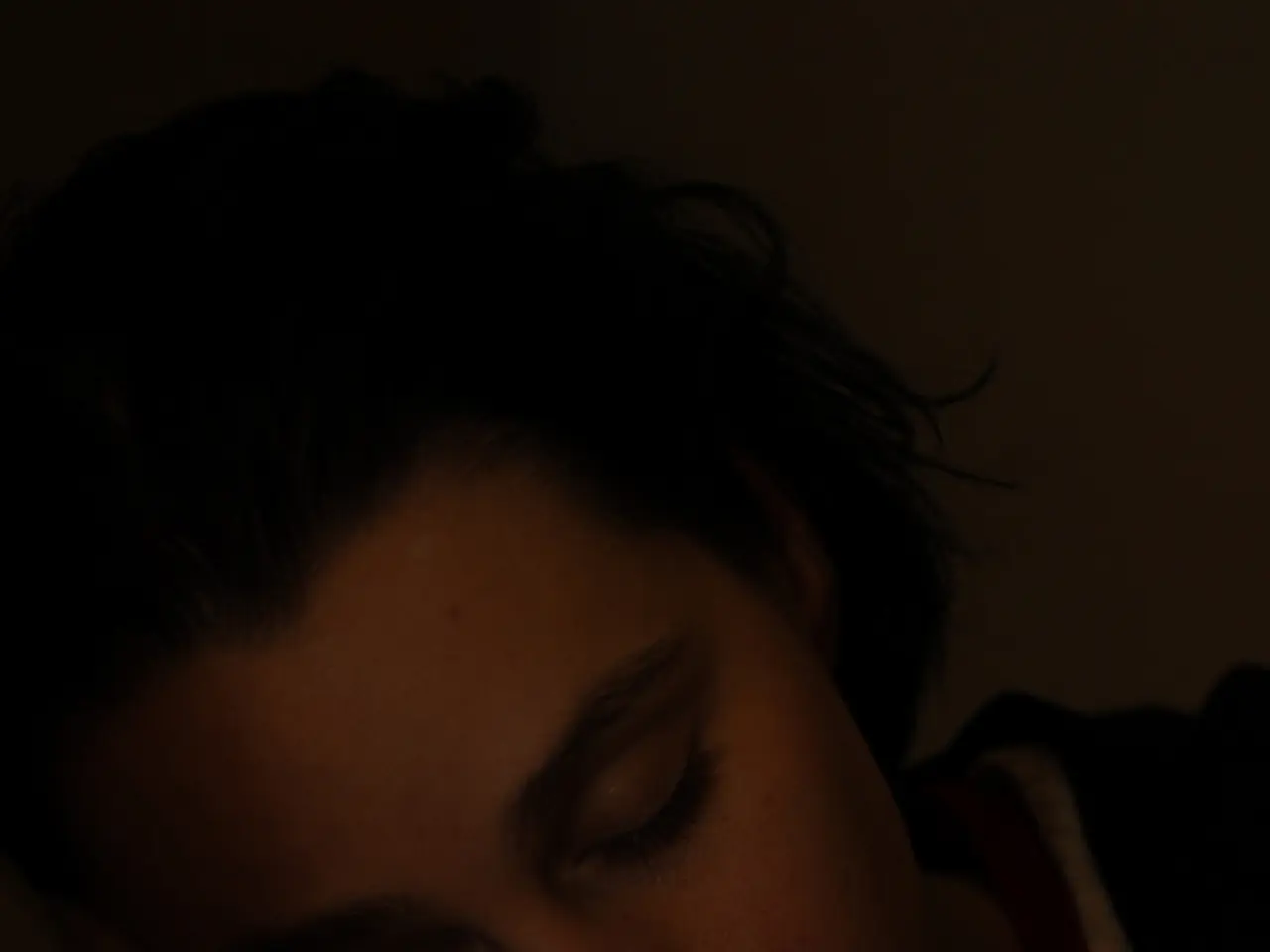Insufficient Rest Leads to Increased Susceptibility to Invasive Internal Thoughts
In the realm of mental health, the importance of a good night's sleep cannot be overstated. Recent studies have shown that a lack of sleep can significantly increase the development and intensity of intrusive thoughts, a common symptom experienced by individuals dealing with anxiety and other mental health disorders.
This correlation arises from the impairment of brain function and cognitive control that results from sleep deprivation. This impairment heightens anxiety and vulnerability to unwanted, distressing thoughts, creating a vicious cycle where intrusive thoughts disrupt sleep further, and sleep deprivation worsens intrusive thinking and emotional regulation.
Fortunately, therapeutic approaches exist to improve sleep quality and help manage intrusive thoughts. Cognitive-Behavioral Therapy (CBT) addresses intrusive thoughts by identifying and reframing unhelpful thought patterns and behaviors. By reducing anxiety and modifying sleep-disruptive behaviors, CBT indirectly improves sleep quality.
Another CBT subtype, Exposure and Response Prevention (ERP), is particularly effective for individuals with OCD. ERP gradually reduces sensitivity to anxiety triggers causing intrusive thoughts, thereby improving sleep quality by reducing nighttime anxiety.
Mindfulness, meditation, and breathing exercises are also valuable tools in managing sleep disturbances linked to anxiety and intrusive thoughts. These practices promote relaxation, increase present-moment awareness, and reduce stress that interferes with sleep and amplifies intrusive thoughts.
Good sleep hygiene and lifestyle changes are equally important. Establishing a consistent sleep schedule, creating a restful environment, and avoiding stimulants can significantly reduce sleep disturbances linked to anxiety and intrusive thoughts.
In some cases, medications such as Selective Serotonin Reuptake Inhibitors (SSRIs) and other antidepressants may be prescribed to manage anxiety and mood symptoms that contribute to intrusive thoughts and sleep problems.
In summary, improving sleep quality through psychological therapies like CBT and ERP, mindfulness practices, and behavioral sleep hygiene can mitigate the frequency and severity of intrusive thoughts. This, in turn, breaks the worsening cycle between poor sleep and intrusive cognition.
Moreover, sleep deprivation can worsen symptoms of PTSD by interfering with the brain's ability to process and "switch off" traumatic memories during sleep. Improving sleep quality could be a key strategy in managing mental disorders like anxiety, depression, and PTSD.
Extreme tiredness can increase irritability and emotional vulnerability in individuals, making them more likely to experience flashbacks and rumination. Improving REM sleep could restore the brain's ability to better manage painful memories and prevent their constant reappearance.
Good sleep hygiene is important for strengthening the brain's ability to suppress intrusive thoughts and promoting better emotional regulation and psychological well-being. Strategies to improve sleep hygiene include cognitive behavioral therapy for insomnia (CBT-I), relaxation techniques, meditation, and mindfulness.
For individuals struggling with intrusive thoughts, especially those who have experienced trauma, sleep-based therapy could be essential. The restoration of a healthy sleep pattern can provide a significant step towards managing and overcoming these intrusive thoughts and improving overall mental health.
- Cognitive-Behavioral Therapy (CBT) is used to manage intrusive thoughts and improve sleep quality by identifying and reframing unhelpful thought patterns and behaviors, which indirectly improves sleep quality.
- Exposure and Response Prevention (ERP), another CBT subtype, is particularly effective for individuals with OCD, as it gradually reduces sensitivity to anxiety triggers causing intrusive thoughts, thus improving sleep quality by reducing nighttime anxiety.
- Mindfulness, meditation, and breathing exercises are valuable tools in managing sleep disturbances linked to anxiety and intrusive thoughts, promoting relaxation, increasing present-moment awareness, and reducing stress that interferes with sleep and amplifies intrusive thoughts.
- Good sleep hygiene and lifestyle changes are equally important; establishing a consistent sleep schedule, creating a restful environment, and avoiding stimulants can significantly reduce sleep disturbances linked to anxiety and intrusive thoughts.
- In some cases, medications such as Selective Serotonin Reuptake Inhibitors (SSRIs) and other antidepressants may be prescribed to manage anxiety and mood symptoms that contribute to intrusive thoughts and sleep problems.




